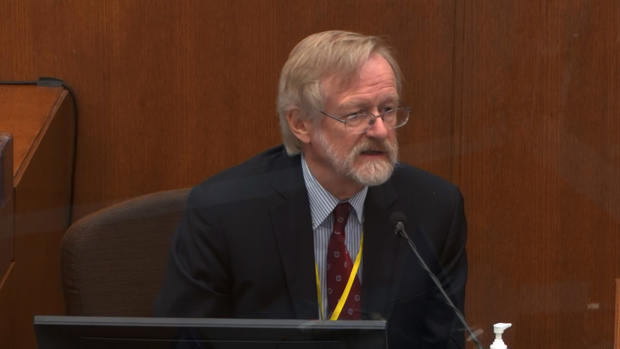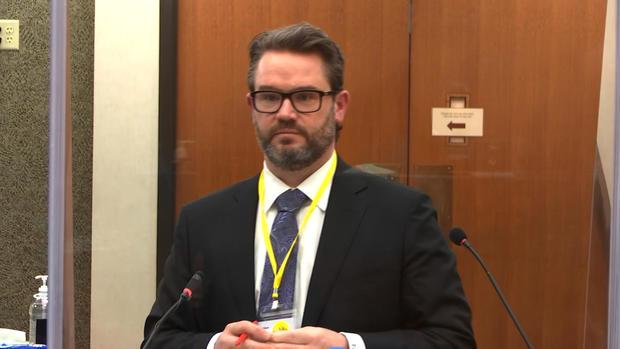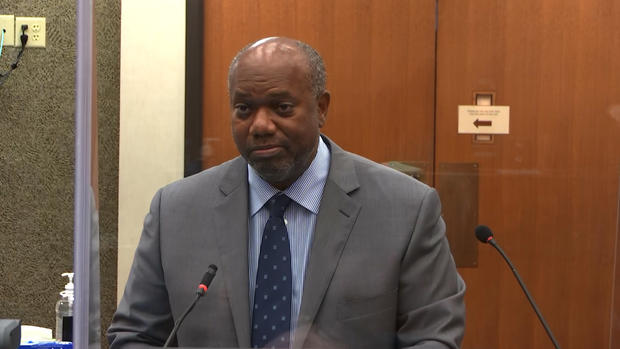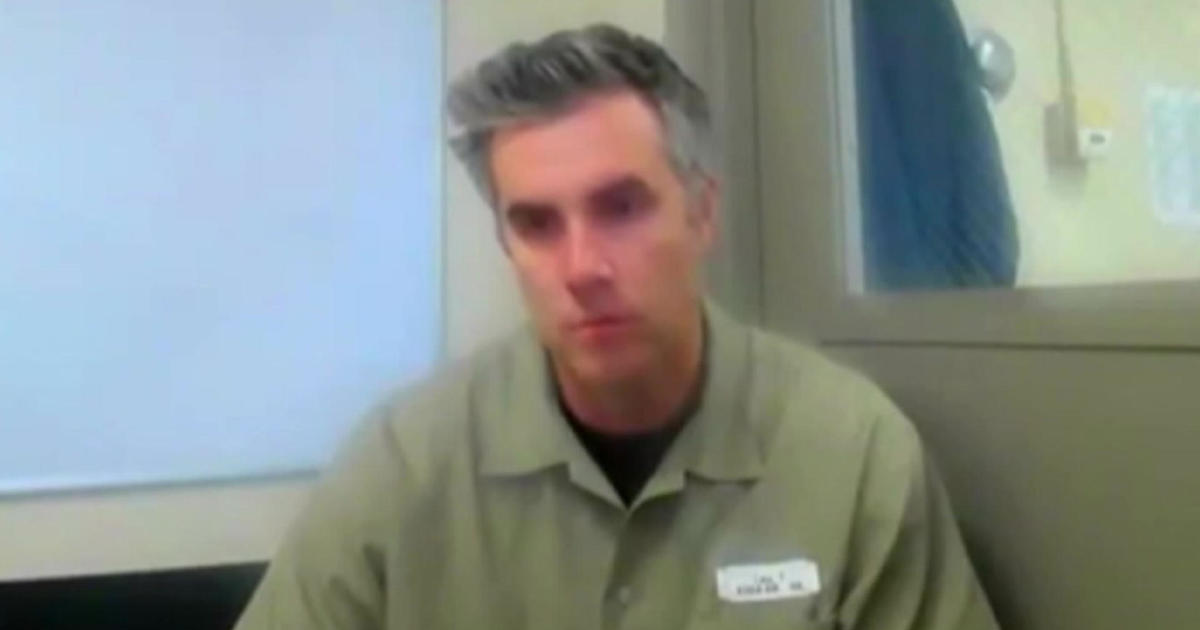Derek Chauvin Trial, April 8: Lung Expert Counters Defense's Claims That Drugs, Poor Health Killed George Floyd
MINNEAPOLIS (WCCO) -- Medical experts took the stand Thursday in the ninth day of testimony in the Derek Chauvin trial.
The former Minneapolis police officer is charged with murder and manslaughter in the May 2020 death of George Floyd.
Video of the incident, taken by outspoken bystanders, sparked protests around the country. It shows Chauvin's knee on Floyd's neck. The officers initially responded to a report of a fake $20 bill.
In court Thursday, Irish-born physician Dr. Martin Tobin used detailed images to explain why he thinks Floyd died from a lack of oxygen. Tobin, who has written what is considered the Bible of textbooks on lung function, gave extraordinary testimony by analyzing the now-infamous body cam and bystander videos -- giving at times a second-by-second analysis of what he described as Floyd's fatal loss of oxygen.
"Mr. Floyd died from a low level of oxygen," Tobin said.
He testified that Floyd was getting less and less oxygen as he continued to say, "I can't breathe."
"It tells you how dangerous is the concept of … if you can speak you can breathe," Tobin said.
From there, Dr. Tobin described what he says was the fatal combination of pressure on Floyd's neck and back from officers, and on his chest from the concrete pavement
"On the right image, you see his knuckle against the tire. And to most people this doesn't look terribly significant, but to a physiologist this is extraordinary significant," Tobin said. "He is using his fingers and his knuckles against the street to try to crank up the right side of his chest. This is his only way to try and get air into the right lung."
He said Chauvin's knee made that difficult.
"The toe of his boot is no longer touching the ground. This means that all of his body weight is being directed down at Mr. Floyd's neck," Tobin said.
And during a slow-motion video, the doctor goes over what he says are Floyd's final moments.
"You can see his eyes, he's conscious, and then you see that he isn't," Tobin said. "That's the moment the life goes out of his body."
He testified that Chauvin stays on Floyd's neck for another three-plus minutes.
"A healthy person subjected to what Mr. Floyd was subjected to would have died as a result of what he was subjected to," Tobin said.
Moments after Floyd uttered his last words, his right leg is seen jerking upward.
"When you are see his leg going up, that is something that we see when somebody suffers major … lack of oxygen," he said. "You're seeing here fatal injury to the brain from a lack of oxygen."
Using animations and diagrams, Dr. Tobin charted Floyd's declining lung capacity and narrowing trachea. He discounted defense theories of Floyd's pre-existing medical conditions and drug use. He counted Floyd's respiratory rate as normal.
"With fentanyl, his respiratory rate should be down at about ten. Instead … it's right in the middle at normal," he said.
But the defense asked about the pills containing methamphetamine, fentanyl and Floyd's DNA that were found in both Floyd's car and the squad -- which defense attorney Eric Nelson argues Floyd consumed.
"Is it fair to say you would expect the peak fentanyl respiratory depression within about five minutes?" Nelson said.
"Right, I mean obviously it would depend on how much of it was ingested," Tobin said.
And that lead prosecutor Jerry Blackwell to this comeback.
"If somebody is suffering from a fentanyl overdose, you would see a depression in the respiratory system," Blackwell said.
"Yes," Tobin said.
"Did you see any depression in Mr. Floyd's ability to breathe before he went unconscious?" Blackwell said.
"No," Tobin said.
Tobin stuck to his testimony that drugs or Floyd's existing medical conditions did not play a part.
"Again, what was the cause [of death] such that those conditions don't matter?" Blackwell said.
"The cause of death is a low level of oxygen that caused the brain damage and caused the heart to stop," Tobin said.
Dr. Bill Smock also dismissed other causes of death, including an overdose.
"From pressure on his chest and back, he gradually succumbed to lower and lower levels of oxygen until it was gone and he died," Smock said.
A forensic scientist also testified Thursday, saying that fentanyl and methamphetamine were found in Floyd's blood.






